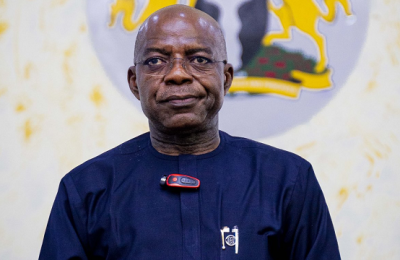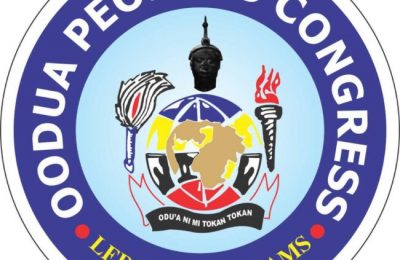
The National President of the National Onion Producers, Processors and Marketers Association of Nigeria (NOPPMAN), Alhaji Aliyu Maitasamu Isa, in this interview, speaks on some of the challenges faced by members of the association and the need for government’s intervention in the sector. OLAKUNLE MARUF brings exercpts.
You recently got re-elected as NOPPMAN president. How do you feel about that?

I feel very happy as it shows the level of confidence my people have in me to continue to serve them. We have challenges which we know that we are going to tackle together. Mind you, our first term has not been exhausted; I still had some months to round off before I got reelected. There is a lot we need to do to improve the onion industry.
Not long ago, you raised the alarm over the Nigeria/Niger border closure, saying members of your association lost billions of naira to the move of the government. Have things improved now for your people?
We lost onions worth billions of naira to the closure because it came to us unprepared. A lot of people lost their investments and when you lose investments in such a manner, it is very difficult to regain the loss. At that time, there was no mechanism in place to cushion the effects of the border closure.
The closure really affected the sector and the effects are still being felt now due to low production of this valuable commodity. Most of our people don’t have money to mobilise farmers to go to farm again. This is supposed to be the season of onions, but can you imagine that even here in Sokoto now, a bag of onions is between N45,000 and N50,000? What happens when we approach the off-season in September? Only God knows how much it will be then if we can be buying at such rate today in Sokoto, not to talk of the consumption areas like the southern part of the country. We are coping with the situation, but it has really affected the sector.
Have you now resumed trading between Nigeria and Niger Republic?
Yes, we have resumed. We are trading very well. In fact, they are very happy to resume trading with us despite all that happened. You know, we share many things with them. Apart from culture, we have so many things in common. Niger and Nigeria are together; we cannot be separated, no matter what happens.
What is the reason for the high cost of onions at this period?
We will attribute it to the removal of subsidy. Since the fuel subsidy removal, everything has gone up. We used to buy a pack of seedlings at the rate of N20,000, but immediately fuel subsidy was removed and the Naira was subsequently floated, everything went up.
We do import some of the inputs, and the more the Dollar value increases the more it affects the price. We have our own local produce but we have not improved them into commercial quantity such that we can depend on them to meet our domestic demand. A seed, as of last year, jumped from about N20,000 to about N50,000. But just a few days ago when I made enquiries about the price, it was about N67,000 and by the time it lands here, it will be around N70,000. And we need about five …. for one hectare of land.
A small-holder farmer who is farming for survival, where will he get about N350,000 to cultivate one hectare? He still needs to buy fertiliser whose price has also jumped to about N40,000, not to talk of other chemicals and fuel to generate power for water supply.
A lot of people subscribed to the narrative that the subsidy was not profiting the common man until it was removed. It was then that we realised that it affected every one of us. It was after the removal that we now knew the real situation. A bag of rice is now N78,000. Comapre that to the minimum wage.
Some people believe that this inflation was caused by insecurity?
Of course, insecurity is one major aspect of it, but the negative impact of fuel subsidy removal outweighs the security issue. I am sure that you know that before now, despite the insecurity, we did go to farm to our farming. Even bandits and the rest of them must eat before anything. All they do is tax people before they allow them to farm. They too know the importance of farming. They are also in need of food to get going.
Insecurity is part of the problem but I can assure you that the effects of subsidy removal caused more problems in the pricing of foodstuffs and other gooda in the market. We can all assess the statistics before the subsidy removal and now. How much do we spend on our basic needs? By this time last year, with one million naira, you could buy about 109 bags of onions, today that amount cannot buy 30 bags. I can tell you that our production has reduced drastically. The removal of the subsidy would have been a good thing if the proceeds were used judiciously.
What is your advice for the government as regards making things better for members of your association?
Our appeal to the government is to look into our sector, the onion farmers and marketers, which has a lot of value chain. It has international market value as onion is consumed worldwide. This produce is consumed in every household. In fact, let me say it is next to rice in people’s daily consumption.
A professor who is writing a paper in one of our engagements asked if onion is medicinal or nutritional. He was trying to find out how valuable this crop is to us. And fortunately for us, the crop is being produced in a region that has highest unemployment rate, highest poverty rate, among others.
This is a commodity that is needed around the world. We are appealing to the government to explore this opportunity. Apart from raw onion, look at onion oil, onion flakes and the rest of them. We have multinationals like Unilever, AC Foods, Nestle, among many others, that need these produce in very large quantities. Even if we give them all the onions in the country, we cannot give them up to what they need.
We appeal to the government to invest in onion. We want the government to invest in the onion value chain from seedling to production, storage and processing. We want the government to even design a good national policy for onion export or other activities.
The Federal Government and Benin Republic began bilateral talks on the opening of a border in Kebbi State. What is your view on this?
The Federal Government’s delegation was in Segbama wara border where they to see things for themselves and they are working on opening the border for business. It is a good thing. We have been advocating the opening of the border. We, on our part, have sent letters to Mr President and one thing we should commend him for is that he has listening ears. I always say that he is a technocrat. You cannot deny the fact that he listens to people.
Part of what we told him is that when we take a trailer of onions through the Lagos route, we travel about 1,500 kilometers, but if we are to pass through the Kebbi State corridor, we will travel 704 kilometers, a little less than half of the Lagos route. So, he listened to us and to knew that we are spending more time, more energy, and more fuel.
It will also improve economic activities in this region and encourage bilateral trade between us and Benin Republic, which will in turn improve on our GDP. A lot of things are going on behind the scenes. Once the border is opened, a lot of business activities will be thrown up and the government, in return, will generate more revenue and earn foreign exchange for the country.
Also, I have to say this, the agreement of Afcta and they also agreed on payment in which even CBN issue a circular that the payment should be made using Afcta.
When they release transaction limit on Afcta transaction settlement to link it up with the NSD form in the payment portal. It is like someone telling you to go and the door is locked where you cannot even pass. When you Iink the pan African settlement payment system with the NSPD form, when I fill the form and get to the currency of repatriation back to my country, I can fill the currency of the country and we want Cefa and Cedis to be part of the currency that will be in the repatriation form so that when we sell our products, appraising banks can come in to convert this currency to our own local one and that will improve on our economy as a country.
As you prepare for your second term, what is your plan for the association?
We want to make our association a reference point in the onion industry in the world. We are the second largest producers in Africa after Egypt, and Egypt is the third in the world. So, we want to be a major international player in the sense that we have one of the best onions in the world, and we want to explore not just the African market but also Europe and Asia.
Because of how we do in terms of policy, it is easy for foreigners to take our products and go. Even this year, I learnt that some people came from India to buy our onion. They took it to Apapa and shipped it out of the country.
We are coming up with a national policy which we are already discussing with the Raw Materials, Research and Development Council which is saddled with the responsibility of developing a strategic framework for agricultural products.
We have opened discussion with the acting Director General of the agency who knows the potential and capacity of this sector and he has assured of us calling all the stakeholders across the country to come together and develop a framework and national policy for the onion sector. Once we have that one, we know where we are coming from, where we are and where we going to. By the grace of God, by the end of my tenure, with the story we are developing, when you see an onion bulb, you will treat it like gold.
We are working to ensure more market opportunities for our members here or in any other part of the world.
ALSO READ: Troops arrest notorious kidnapper, suspected informants in Oyo, Abuja







